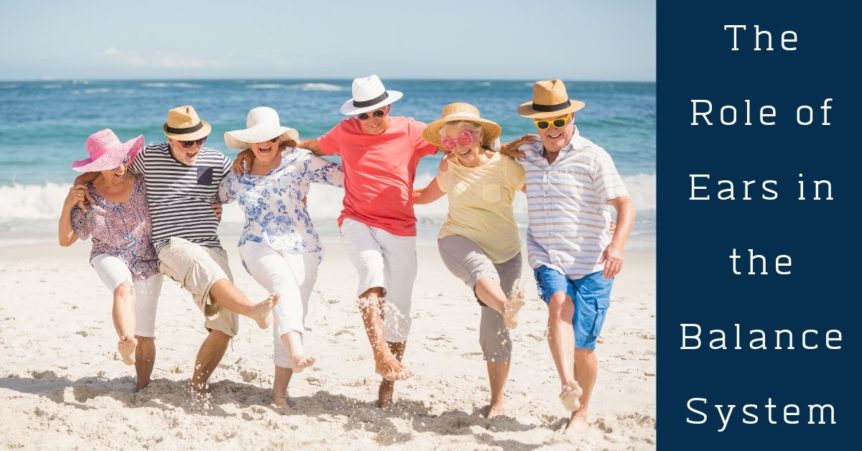Balance disorders are disturbances that cause an individual to feel unsteady, giddy, woozy, and can often make people feel as though the room is spinning, or floating. Our inner ears are key in maintaining our balance. If you are feeling dizziness or having trouble staying balanced it could be an issue, we can help you with at Neighborhood Hearing Aid Center.
How does our sense of balance work?
The ear is a sensory organ that picks up sound waves, and allows us to hear. It is also essential to our sense of balance. The Vestibular system is considered the organ that keeps us in balance and is found inside the inner ear. It is made up of three semicircular canals and two otolith organs, known as the utricle and the saccule. The semicircular canals and the otolith organs are filled with fluid. Each of the semicircular canals end in a space that has small hair cells in it, otherwise known as ampullae. Whenever we turn our head, the inner ear turns along with it though it takes a very brief moment for the fluid in the semicircular canals and ampullae to move along with our head. This means that the slow-moving fluid gently bends the sensory hair cells in the ear in the vestibular system. The hair cells then send this information to the brain via nerves. Information coming from the vestibular system is processed in the brain and then sent on to other organs that need this information to keep us in balance, such as the eyes, joints or muscles.
Healthy Hearing as a Reference Point
If you’ve ever turned out a light and tried to move in the dark, you know that losing a sense can severely impact your ability to maintain balance. Without the ability to see, you’re forced to rely on your other senses to stay upright. Evidence has shown that the same concept can apply to your hearing. It has been documented that people with burst eardrums suffer from immediate loss of balance, and very often those with hearing loss can experience poorer balance than those with a full range of hearing.
Studies in Balance
Many hard of hearing people are finding their way with hearing aids. Many scientists now suspect that using hearing aids can greatly improve balance issues. The Washington University School of Medicine in St. Louis conducted a study, which found that older people who use hearing aids s benefit from improvements in balance, which in turn reduces their risk of falls. This study demonstrated that it’s sound, and not just the balance system of the inner ear, that adds context to help with postural balance and can help to alleviate balance. In the study, standard balance tests were used to measure balance in participants with their hearing aids on and off. The study concluded that, the participants appeared to be using the sound information coming through their hearing aids as auditory reference points or landmarks to help maintain balance.
Hearing Aids and Balance
Because hearing aids improve the quality and amount of sound reaching the eardrum, it gives the brain a better idea of one’s surroundings. People are able to identify auditory landmarks around them, which contributes to their sense of balance. While humans are visual creatures, we rely heavily on the sounds around us to give us a relative idea of our surroundings. We can only look one way, but our ears can hear in all directions. Hearing aids can improve our sense of spatial awareness and safety. Those with hearing aids experience lower levels of anxiety and paranoia, and spend less time worrying about their surroundings. There have also been studies linking hearing loss and mental illnesses like dementia and depression, and hearing aids appear to help combat the onset of these conditions or alleviate the symptoms.
Visit Us at Neighborhood Hearing Aid Center
If you or a loved one is suffering from hearing loss, hearing aids might help restore a sense of balance and safety. While it is a personal decision, it is one that can contribute to overall health and deeply reduce the risk of accidents and falls in seniors. Contact us at Neighborhood Hearing Aid Center to set up an appointment to see if hearing aids can help your balance.

